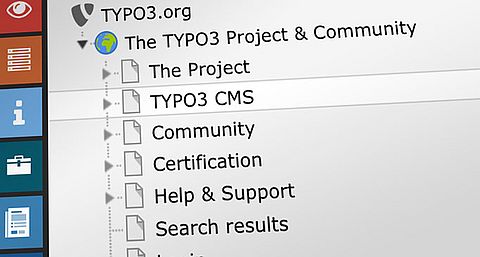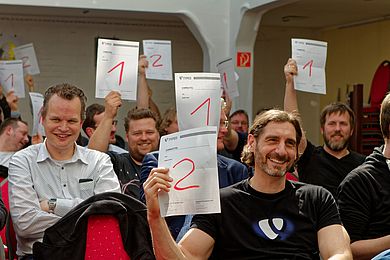This article contains information from that meeting as well as some additional facts and considerations.
Main Conclusions
- The Association Board and Business Control Committee (BCC) are sorry for the confusion caused by this year’s budget process. We have learnt a lot and will improve.
- Budget applications can be resubmitted, but with clearer definitions of success criteria measured against the goal of increasing membership. Some submitters will also be contacted by us.
- The intention of the new budget process is to create increased accountability and transparency. That requires clear rules.
- Feedback and open discussions with the community and our members is important to do this right and to build consensus around the decisions made.
What Happened in This Year’s Budget Ideas
This year was the beginning of a new type of budget process, involving both the Board and the BCC. It was also different because the budget was significantly lower (the Association’s reserve was no longer being used) and the Board had asked that the ideas adhere to the strategic goals defined for the budget. The transfer of knowledge and new processes led to delays.
One of the goals of the new budget process was to improve accountability and transparency. That meant this year’s budget ideas were put under a lot more scrutiny than previous years.
Not Yet Accepted, Pending Resubmission
In a joint meeting between the Board and BCC, it was decided to not accept any of the ideas for now. This was not intended as an outright rejection of the ideas, and we shouldn’t have used the word rejected. However, the submitted ideas lacked enough information to make an accountable decision. Such information was not explicitly requested, and the need for it arose during the review process.
This Year’s Process in Retrospect
Both the delayed process and the message of rejection that was sent to all the budget idea submitters have led to a great deal of consternation. Although it was far from the intention of the Board and BCC, many people have expressed that it made them feel like a number and that they were not being taken seriously.
We are sorry for how this years’ budget process transpired, and there are numerous areas where we have to improve. We have learnt from this process, and we will do better next time.
Call to Resubmit Budget Ideas
All budget ideas can be resubmitted. The Board and BCC have created a committee that is taking another look at the ideas. They are also contacting the submitters of the ideas that are closest to being approved. Everyone who wishes to resubmit are welcome to send their ideas to budget(at)typo3.org. We encourage submitters to clearly address the stated goal in their re-submission.
What Are the Acceptance Criteria?
A good definition of the acceptance criteria was lacking at the beginning of the budget process, and it is now in development. The current review process is helping shape the criteria. The criteria will be finalized by the time the process for the 2023 budget begins, in a few months’ time.
For now, what has become clear is that there is no way to true accountability without clear goals. This means budget ideas should specify how we can measure their success. What are the key performance indicators (KPIs) of the idea measured against the goal announced for the budget round? This year the goal was “to foster and grow the TYPO3 community and number of TYPO3 Association members.” With clear success indicators, the BCC can control that the budget money is spent in accordance with the Board’s intentions and the TYPO3 Association’s bylaws.
Of course, it is hard to define KPIs for some budgets, but all budgets should have a definition of their own success. All budgets should and will be measured against these goals.
Money Beyond Accepted Budgets
Some budgets will not be accepted. This has always been true but we hope to make it clearer what the criteria are. Here are a few of the general reasons why a budget may not be accepted:
- It does not fit the goals of the budget round.
- It received too few votes from the members.
- It belongs within a team’s budget, including that of the Core Team.
- It covers the cost of developing a third-party extension.
- It covers similar topics to other ideas. They should join forces.
- It should be funded by other sources than a TYPO3 budget allocation.
Being rejected due to one of these reasons does not mean that the idea is bad.
Let’s Talk About How we Fund the Ecosystem
Where do we draw the line? To answer this, we need help from our members. There is probably no perfect answer, but we can build consensus about the decisions made. We believe the budgets awarded should drive innovation and further the Association’s long-term goals for the community and the CMS.
The meeting on 2 June ended with an open conversation about work time in budgets. We hope to be able to continue it at a later date. Whether or not to pay for work time and how much to include in budgets is another difficult question. The answer is wrought somewhere between creating the security of paid work and avoiding virtual full-time employment opportunities through the Association’s budgets.
Using an open-source toolkit means everyone has to invest in the tools they use. One of those tools is TYPO3. However, as a professional, it’s important to support the third-party extensions and libraries you rely on. Just like work time, donations and crowdfunding campaigns will always be necessary contributions to the ecosystem. The TYPO3 Association would like to encourage that as well, and will help to start such campaigns.





